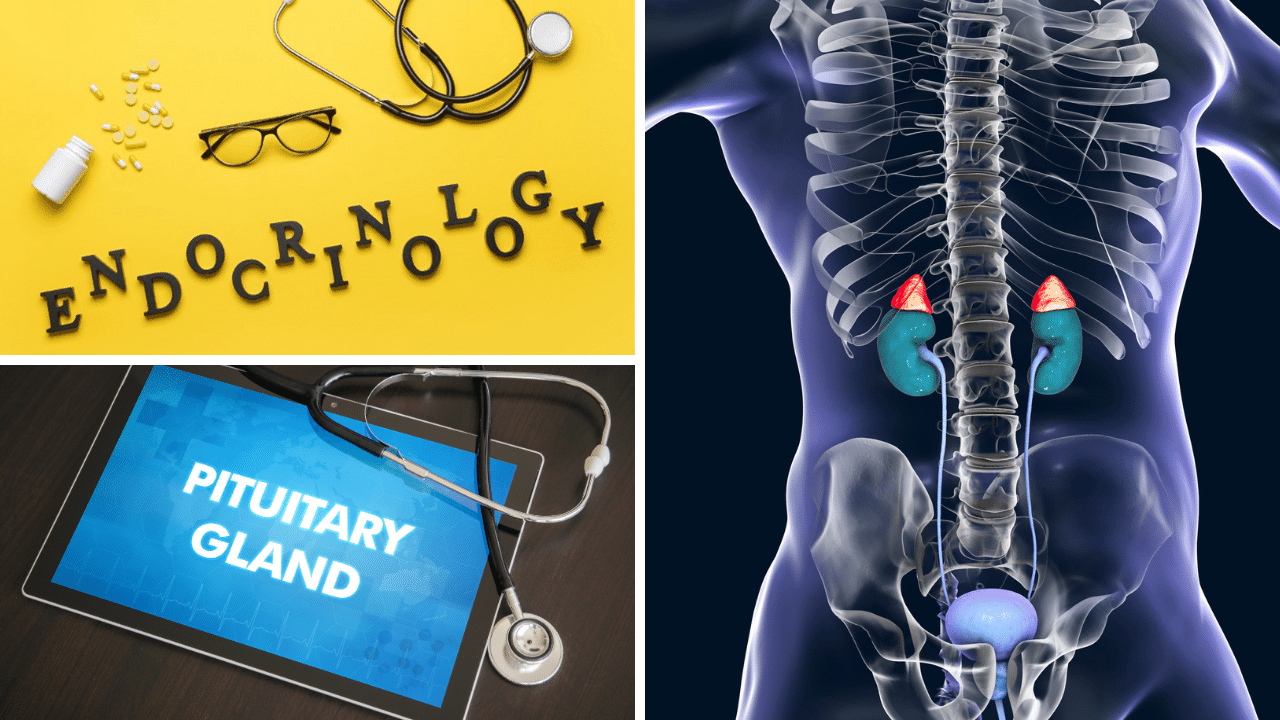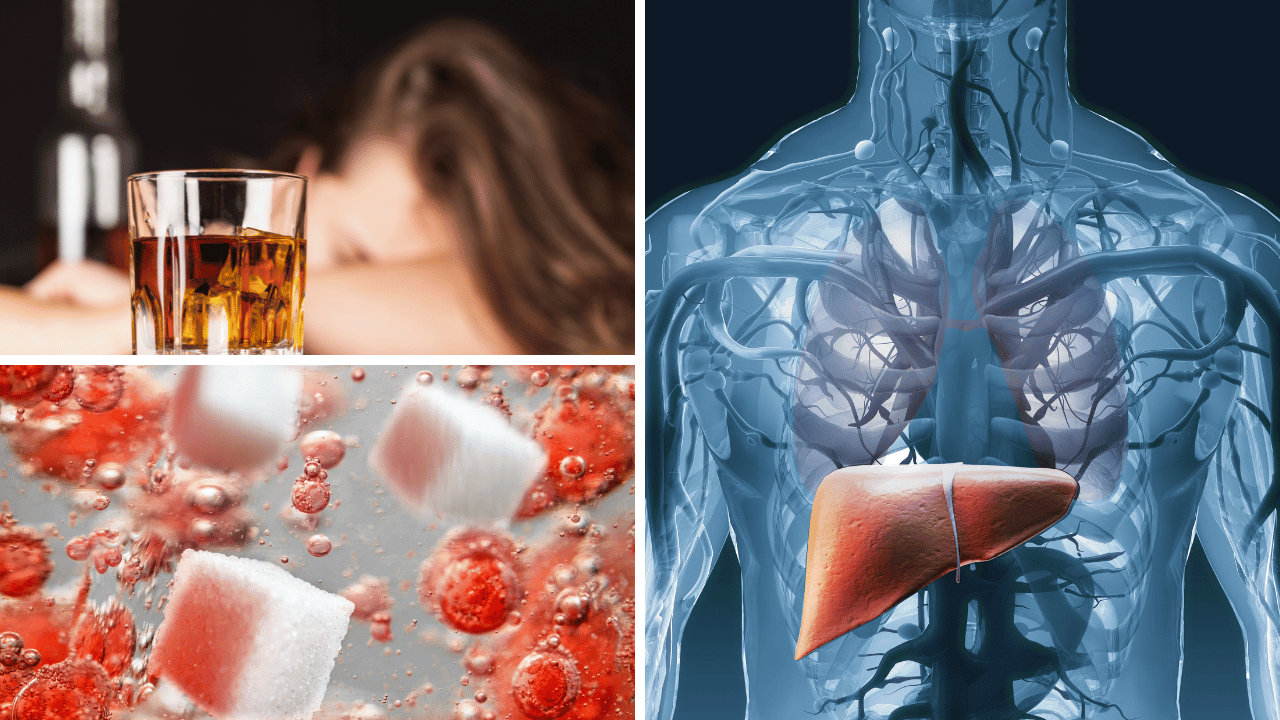The endocrine system is an intricate network of glands and organs that plays a pivotal role in regulating numerous physiological processes throughout the body. It operates through chemical messengers called hormones, which are secreted into the bloodstream and transported to target cells and tissues. This article delves into the complexities of the endocrine system, its components, functions, and the importance of maintaining its health.
Key Takeaways:
The endocrine system is a network of glands that produce and release hormones to regulate various bodily functions.
- Hormonal imbalances can lead to various endocrine disorders, affecting growth, metabolism, and reproductive health.
- Maintaining a healthy endocrine system involves lifestyle choices that support hormonal balance, regular exercise, and a diet rich in omega-3s, antioxidants, and fiber like fish, nuts, leafy greens, and whole grains.
The Glands of the Endocrine System
The endocrine system consists of several glands, each with specific functions. The pituitary gland, often referred to as the "master gland," is located at the base of the brain and oversees the release of hormones from other endocrine glands. It produces critical hormones like growth hormone, adrenocorticotropic hormone, and thyroid stimulating hormone.
The thyroid gland, situated in the neck, is responsible for producing thyroid hormones that regulate metabolism, body temperature, and growth and development. The parathyroid glands, located behind the thyroid, secrete parathyroid hormone, which is essential for maintaining blood calcium levels.
Hormones and Their Functions
Hormones act as the body's chemical messengers, transmitting information from the endocrine glands to the cells. For instance, insulin, produced by pancreatic cells, helps regulate blood glucose levels, while adrenal glands produce corticosteroid hormones that maintain blood pressure and stress responses. Sex hormones, such as estrogen and testosterone, are crucial for reproductive health and sexual function.
Interaction with Other Systems
The endocrine system closely interacts with other bodily systems, such as the nervous system and the digestive system. The neuroendocrine system, a combination of nerve cells and endocrine cells, exemplifies this interaction, with the brain and nervous system influencing the release of hormones and vice versa.
Regulation of Hormone Levels
The body meticulously regulates hormone levels to ensure homeostasis. The release of hormones is often controlled by feedback mechanisms. For example, when blood sugar levels rise, insulin is released to lower them, and once they reach an optimal level, insulin secretion decreases.
Endocrine Disorders
Endocrine disorders occur when there is a hormonal imbalance, either due to overproduction or underproduction of certain hormones. Conditions such as diabetes, polycystic ovary syndrome, adrenal insufficiency, and thyroid disorders like overactive thyroid (hyperthyroidism) or underactive thyroid (hypothyroidism) are examples of such imbalances.

Maintaining Endocrine Health
Keeping the endocrine system healthy involves a balanced diet, regular exercise, and stress management. It's also important to monitor hormone levels through medical check-ups, especially for individuals with a predisposition to endocrine disorders.
The Role of the Adrenal Glands
The adrenal glands, located atop the kidneys, consist of two parts: the adrenal cortex and the adrenal medulla. The adrenal cortex secretes hormones like cortisol and aldosterone, while the adrenal medulla produces adrenaline and noradrenaline, which help the body respond to stress.
Thyroid Hormones and Metabolism
Thyroid hormones are vital for metabolic processes. An overactive thyroid can lead to weight loss and increased heart rate, while an underactive thyroid might cause weight gain and fatigue. The thyroid gland makes and releases these hormones in response to thyroid-stimulating hormones from the pituitary gland.
The Intricacies of Hormone Production and Release
The human body is a complex network of hormone systems that work in concert to maintain homeostasis. The pituitary gland, often referred to as the "master gland," plays a pivotal role in this process. It produces hormones that regulate other glands within the endocrine system. For instance, the pituitary gland makes releasing hormones that prompt the adrenal gland to produce hormones, such as cortisol, which is vital for the stress response. This intricate system ensures that each gland can respond to the body's needs in real time.
Furthermore, the pituitary gland's anterior lobe secretes luteinizing hormone, which is crucial for testosterone production in males and ovulation in females. The posterior pituitary gland, on the other hand, releases antidiuretic hormone (ADH), which helps the kidneys manage the body's water balance. These examples underscore the precision with which the endocrine system operates, with each hormone produced having a specific target and function, affecting everything from growth to metabolism in body tissues.

The Significance of Sweat Glands in Hormone Regulation
Sweat glands, often overlooked in discussions of the endocrine system, play a subtle yet significant role in hormonal balance and skin health. These exocrine glands, while primarily involved in temperature regulation and excretion, can also influence the hormone system indirectly. For instance, they help to eliminate excess hormones and toxins that could otherwise disrupt hormonal equilibrium. This detoxification process is crucial for maintaining the overall harmony of the body's internal environment.
Moreover, sweat glands can respond to hormonal signals, particularly those related to stress and sex hormones. When the body experiences stress, the adrenal glands release hormones like adrenaline and cortisol, which can trigger the sweat glands to increase perspiration. This response is part of the body's natural mechanism to cool down and manage stress. Additionally, sex hormones can affect the activity of sweat glands, altering sweat production during different phases of the menstrual cycle or life stages such as puberty or menopause.
Insulin-Like Growth Factor and Its Role in Development
Insulin-like growth factor (IGF) is one of the many hormones that play a pivotal role in growth and development. Produced primarily by the liver, IGF acts in concert with growth hormone (GH) to promote the growth of bones and tissues. This hormone system is essential during childhood and adolescence, where it facilitates the proper development of the body's structure and function. IGF also has significant effects on muscle growth and repair, making it a key factor in maintaining muscle health throughout life.
In adults, IGF continues to have important functions, including the regulation of metabolism and the maintenance of muscle and bone mass. Abnormal levels of IGF can lead to growth disorders in children and contribute to metabolic syndromes in adults. Research has shown that IGF can interact with other hormones, such as insulin, to influence body composition and energy homeostasis. Understanding the intricate balance of IGF and its relationship with other hormones is crucial for developing treatments for various endocrine disorders.
Hormonal Influence on Body Functions
Hormones exert their influence on nearly every physiological process, including the growth and function of body tissues. Insulin-like growth factor, for instance, plays a significant role in childhood growth and continues to have anabolic effects in adults. The parathyroid gland, albeit small, has the monumental task of managing the body's calcium levels, which is vital for bone health and muscle function. It produces parathyroid hormone, which regulates calcium levels in the blood, working in tandem with vitamin D and the kidneys.
Estrogen receptors are found in various body tissues, indicating the widespread effects of this hormone, including its role in the development of secondary sexual characteristics and the regulation of the menstrual cycle. Similarly, not having enough thyroid hormone can lead to hypothyroidism, affecting metabolism, while more thyroid hormone production can lead to hyperthyroidism, causing excessive metabolic rates. These examples highlight the delicate balance hormone systems must maintain to ensure optimal health and the far-reaching consequences when this balance is disrupted.

Parathyroid Glands and Calcium Balance
The parathyroid glands play a crucial role in calcium balance. Parathyroid hormone helps regulate calcium levels in the blood, which is essential for nerve function, muscle contraction, and bone health.
The Pineal Gland and Sleep
The pineal gland, a small endocrine organ in the brain, produces melatonin, which regulates sleep patterns. It responds to light and dark cycles, releasing more melatonin at night to promote sleep.
Hormones and Growth
Growth hormone, produced by the pituitary gland, is essential for normal growth and development. Too much growth hormone can lead to conditions like gigantism, while too little can result in growth deficiencies.
Reproductive Hormones
The reproductive organs, including the ovaries in the female reproductive system and the testes in males, produce sex hormones. These hormones control not only reproductive functions but also secondary sexual characteristics.
The Pancreas and Blood Sugar Regulation
The pancreas plays a dual role in both the digestive and endocrine systems. It produces digestive enzymes and hormones like insulin and glucagon, which work together to maintain stable blood glucose levels.
Hormones and Stress Response
The adrenal glands produce hormones that are crucial for the body's stress response. Cortisol, known as the "stress hormone," helps the body cope with long-term stress, while adrenaline prepares the body for a quick reaction.
Endocrine System and Aging
As the body ages, endocrine function can decline, leading to changes in hormone production and secretion. This can affect metabolism, sexual function, and overall health, making age-related endocrine disorders more common.
Endocrine Disruptors
Certain chemicals in the environment can interfere with the endocrine system, known as endocrine disruptors. These can mimic or block the action of hormones, leading to health issues.

FAQ Section
What does the endocrine system do?
The endocrine system regulates vital body functions via hormones, controlling metabolism, growth, reproduction, and mood. It maintains homeostasis, responding to stress and environmental changes.
What are the main glands of the endocrine system?
The main glands include the pituitary gland, thyroid gland, parathyroid glands, adrenal glands, pineal gland, and reproductive glands, among others.
How can I keep my endocrine system healthy?
Maintaining a balanced diet, regular physical activity, managing stress, avoiding exposure to endocrine disruptors, and getting regular health screenings can help keep your endocrine system healthy.
What are common endocrine disorders?
Common endocrine disorders include diabetes, thyroid diseases (such as hypothyroidism and hyperthyroidism), adrenal insufficiency, polycystic ovary syndrome, and growth hormone imbalances.
What foods are best for the endocrine system?
Foods rich in omega-3s, antioxidants, and fiber like fish, nuts, leafy greens, and whole grains support the endocrine system by promoting hormone balance.

May we say in conclusion…
The endocrine system is a complex network of glands and hormones that regulate vital functions throughout the body. Understanding its components and how they work together is crucial for maintaining overall health. Hormonal imbalances can lead to a variety of disorders, emphasizing the importance of a healthy lifestyle and regular medical check-ups to ensure endocrine health.











